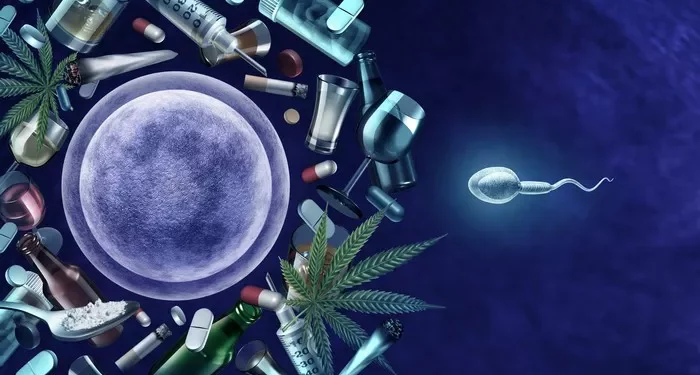Female fertility is a crucial aspect of reproductive health, influencing the ability to conceive and maintain a healthy pregnancy. Various factors, including age, lifestyle, and underlying medical conditions, can affect a woman’s fertility. Among lifestyle factors, alcohol consumption is a significant concern due to its widespread prevalence and potential impact on reproductive health. Understanding the relationship between alcohol and female fertility is essential for making informed decisions about drinking habits, particularly for women trying to conceive.
This article explores the effects of alcohol on female fertility, focusing on ovulation and menstrual cycles, egg quality, implantation, and overall health. We will also examine the role of dosage and timing in alcohol consumption, address concerns and recommendations, and summarize the current evidence to provide a comprehensive overview of this critical issue.
Effects of Alcohol on Female Fertility
Ovulation and Menstrual Cycle
Alcohol consumption can significantly disrupt the hormonal balance necessary for regular ovulation and menstrual cycles. The endocrine system, which regulates hormone production and release, is particularly sensitive to alcohol. Estrogen and progesterone, key hormones in the menstrual cycle, can be altered by alcohol intake, leading to irregular periods and ovulation cycles.
Studies have shown that women who consume alcohol may experience changes in the levels of luteinizing hormone (LH) and follicle-stimulating hormone (FSH), both crucial for ovulation. Alcohol can impair the secretion of these hormones from the pituitary gland, resulting in anovulation (lack of ovulation) or irregular ovulation. Furthermore, chronic alcohol consumption can lead to a condition known as hypothalamic amenorrhea, where the hypothalamus fails to stimulate the pituitary gland properly, causing menstrual irregularities and reduced fertility.
Egg Quality
The quality and quantity of a woman’s eggs are vital for successful conception and a healthy pregnancy. Alcohol can negatively impact both these factors, reducing a woman’s chances of conceiving. Research indicates that alcohol can induce oxidative stress in the ovaries, leading to damage to the ovarian follicles where eggs develop. This oxidative stress can compromise the DNA integrity of the eggs, reducing their quality and viability.
Moreover, alcohol consumption has been linked to a decrease in the ovarian reserve, which is the number of viable eggs remaining in the ovaries. Women with a lower ovarian reserve may have a more challenging time conceiving, as there are fewer high-quality eggs available for fertilization. Animal studies have also suggested that alcohol can accelerate the depletion of ovarian follicles, leading to an earlier onset of menopause and reduced reproductive lifespan.
Implantation
Successful implantation of a fertilized egg in the uterus is a critical step in establishing a pregnancy. Alcohol can interfere with this process by affecting the uterine environment and endometrial receptivity. The endometrium, the lining of the uterus, must be adequately prepared to receive and nurture the fertilized egg. Alcohol consumption can disrupt the delicate hormonal balance required for this preparation, leading to a less receptive endometrium.
Additionally, alcohol can impair the expression of specific proteins and genes involved in the implantation process. For instance, research has shown that alcohol can alter the levels of integrins and other adhesion molecules on the endometrial surface, which are essential for the attachment and implantation of the embryo. This impairment can reduce the likelihood of successful implantation, increasing the risk of early pregnancy loss or failure to conceive.
Overall Health
Heavy alcohol consumption can have a detrimental effect on a woman’s overall health, indirectly impacting fertility. Chronic alcohol use is associated with various health issues, including liver disease, cardiovascular problems, and metabolic disorders. These conditions can affect reproductive health by altering hormone levels, disrupting menstrual cycles, and impairing ovarian function.
Moreover, alcohol can affect nutritional status by interfering with the absorption and metabolism of essential nutrients like folate, zinc, and vitamin B6. These nutrients play crucial roles in reproductive health, and deficiencies can lead to infertility. For example, folate is vital for DNA synthesis and repair, and a deficiency can result in poor egg quality and increased risk of neural tube defects in offspring.
See also: Can Abortion Affect Fertility
The Role of Dosage and Timing
Light, Moderate, and Heavy Drinking
The impact of alcohol on female fertility varies with the amount and frequency of consumption. Light to moderate drinking, generally defined as up to one drink per day for women, has been the subject of numerous studies with mixed results. Some research suggests that light drinking may not significantly impact fertility, while other studies indicate even moderate alcohol intake can reduce the chances of conception.
Heavy drinking, defined as consuming more than seven drinks per week or binge drinking (four or more drinks in a single occasion), is consistently associated with adverse effects on fertility. Women who engage in heavy drinking are more likely to experience menstrual irregularities, reduced ovarian reserve, and impaired implantation, leading to lower fertility rates and higher risk of infertility.
Timing of Alcohol Consumption
The timing of alcohol consumption relative to the menstrual cycle and ovulation can also influence its impact on fertility. Some studies suggest that drinking alcohol during the luteal phase (the period between ovulation and the start of menstruation) may be particularly detrimental to implantation and early pregnancy. This phase is crucial for the preparation of the endometrium and the establishment of pregnancy, and alcohol consumption during this time can disrupt the hormonal environment and impair implantation.
Conversely, some research indicates that occasional alcohol consumption during the follicular phase (the period from the start of menstruation to ovulation) may have less impact on fertility. However, the overall evidence remains inconclusive, and more research is needed to determine the specific effects of alcohol consumption at different stages of the menstrual cycle.
Addressing Concerns and Recommendations
Lack of Conclusive Evidence
While many studies have explored the relationship between alcohol consumption and female fertility, conclusive evidence on the impact of low-level alcohol intake is still lacking. Some studies suggest that light drinking may not significantly affect fertility, while others indicate potential risks even with minimal alcohol consumption. The variability in study designs, populations, and definitions of alcohol consumption makes it challenging to draw definitive conclusions.
Benefits of Abstaining
Given the potential risks and the lack of conclusive evidence on the safety of low-level alcohol consumption, many healthcare professionals recommend abstaining from alcohol when trying to conceive. Avoiding alcohol can help ensure optimal hormonal balance, egg quality, and uterine environment, increasing the chances of successful conception and a healthy pregnancy. Additionally, abstaining from alcohol eliminates any potential risk of fetal alcohol spectrum disorders, which can result from alcohol exposure during pregnancy.
Risks During Pregnancy
It is well-established that alcohol consumption during pregnancy can have severe consequences for fetal development. Drinking alcohol while pregnant can lead to a range of adverse outcomes, including miscarriage, stillbirth, and fetal alcohol spectrum disorders. These disorders can cause physical, behavioral, and cognitive impairments that last a lifetime. Therefore, it is crucial for women who are pregnant or planning to conceive to avoid alcohol entirely to protect their baby’s health.
Conclusion
The relationship between alcohol consumption and female fertility is complex and multifaceted. Alcohol can disrupt hormonal balance, impair egg quality, hinder implantation, and affect overall health, all of which can reduce fertility. The impact varies with the amount and timing of alcohol consumption, with heavy drinking consistently associated with adverse effects. While conclusive evidence on the effects of low-level alcohol intake is still lacking, abstaining from alcohol when trying to conceive is a prudent approach to maximize fertility and ensure a healthy pregnancy.
For personalized advice and guidance on alcohol consumption and fertility, it is essential to consult a healthcare professional. They can provide tailored recommendations based on individual health status, lifestyle, and reproductive goals, helping women make informed decisions to optimize their fertility and reproductive health.
Related Topics:
Fertility Medications for Women: A Comprehensive Tutorial



























